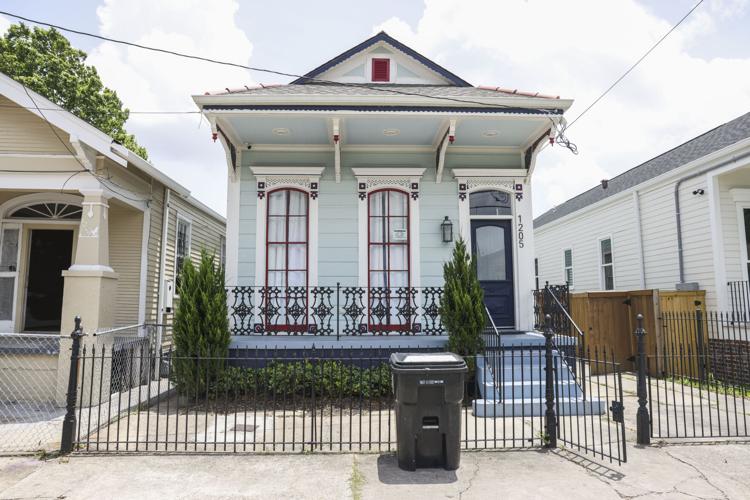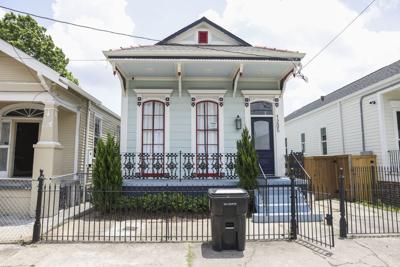A federal judge on Monday said he would impose a hard deadline for the New Orleans City Council to pass a new short-term rental law for residential districts, warning that the court would create regulations on its own if the March 31 deadline isn’t met.
The council was forced to revise its 2019 law governing AirBnbs and other short-term rentals after the federal 5th Circuit Court of Appeals in August determined that a homestead exemption requirement for residential short-term rental owners violated the constitutional rights of operators from outside Louisiana.
Still, the 5th Circuit ruling, which stemmed from a lawsuit filed by out-of-state owners, recognized the city’s legitimate purpose in regulating short-term rentals and laid out a number of policy options that would pass legal muster. That offered the council a path to re-writing the rules, which they have promised to do.
An assistant city attorney, Daniel Smith, said in the Monday court hearing that policymakers are considering the 5th Circuit’s suggestions, including capping the number of permits per block and requiring managers to live on site, whether or not they own the properties. The city might also restrict residential permits to “natural persons,” barring limited liability companies and other corporate entities, Smith said.

U.S. District Judge Ivan Lemelle
U.S. District Court Judge Ivan Lemelle of the Eastern District of Louisiana questioned why a new law hadn’t been adopted yet, and said he was reluctant to allow more time.
But faced with all-or-nothing alternatives that could have resulted in either the collapse of remaining short-term rental regulations or revocation of existing permits, Lemelle said he would allow the city to complete its process for drafting new zoning laws. A formal ruling was expected after the hearing.
In setting the deadline, Lemelle said he would uphold a temporary ban on new residential short-term rental permits that the City Council passed in October. The ban is in effect for one year, but council members have said they hope to lift the ban by March once they’ve finalized a new law.
March 9 is the earliest date that a new law can pass under procedures for adopting new zoning laws, which includes study by the City Planning Commission, according to the council’s resolution. A spokesperson for at-Large Council person JP Morrell, who is leading the council's STR revisions, said the council is aiming to pass a new law even earlier, by March 1.
In any case, Lemelle said Monday that the city must implement new measures by March 31, “or the court will.”
Good-faith efforts
Dawn Wheelahan, the lawyer for plaintiffs who sued over the original law, argued that the temporary ban continues unconstitutional regulations by grandfathering existing permit holders, even though they are not eligible for renewal until a new law is in place.
Smith argued that if the temporary ban is unacceptable, the only alternative is to cut out the grandfather provision and revoke all residential permits.
Wheelahan said that outcome would unfairly benefit short-term rental owners in commercial districts, who have not been affected by the 5th Circuit ruling and subsequent legislation.
As of October, there were approximately 1,300 residential permits and 900 commercial ones, according to city officials. The number of illegal short-term rentals in operation is likely far higher, though the Cantrell administration has recently stepped up enforcement with additional inspectors and a technology contract to identify illegal listings.
Lemelle agreed with Wheelahan that the grandfather provision is problematic, but disagreed with the idea that residential and commercial operators must be treated the same.
Doing away with all residential short-term rental permits would indeed redress discrimination against out-of-state owners, Lemelle said, though he called that a “drastic” course of action.
Lemelle urged the city to consider temporary permits for residential owners who applied before the 5th Circuit ruling but were frozen by the ban, suggesting that anyone whose constitutional rights have been impaired by the ongoing ban could seek monetary damages.
Lemelle also chastised both the city and plaintiffs for failing to engage in sincere attempts at a settlement. He ordered the two sides to jointly file monthly reports on their progress.
“I want good-faith attempts to resolve this,” Lemelle said. “Let’s try to achieve finality.”




